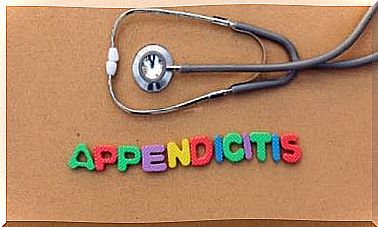Should We Add Salt To Children’s Food?

Salt is one of the best flavor enhancers in the world. It makes culinary preparations tastier and more enjoyable. But should we add salt to food for children? The truth is that adding salt to children’s foods is unnecessary and potentially dangerous.
During childhood, it is best to instill good eating habits that can be maintained into the future. Therefore, it is essential to provide the child with the necessary nutrients for growth and to avoid those elements that are harmful to his health.
We don’t need to add salt to give a balanced diet
The first thing to understand is that salt consists mainly of sodium. This mineral is very important for human health – but in the right amount.
Sodium is naturally present in food, so adding salt to meals is unnecessary and significantly increases your intake. Exceeding the desirable limit of this mineral can cause damage to your health.
However, there are contexts where the consumption of salt is recommended. For example, in the case of athletes after intense exercise. This is because sweating causes your body to lose copious amounts of sodium, which must be replaced.
However, this is not directly transferable to infant formula. The amount of sodium that children ingest through food is sufficient for their bodies. As with many other nutrients, the needs for this mineral in childhood are very different than in adulthood.

Why is it not good to add salt to infant food?
Avoid if possible salt added to children’s food to be.
For years, experts argued that this element could cause hypertension in the medium and long term. This is according to a study published in the journal Nutrients .
The most recent study (English link) claims, however, that the link between salt intake and blood pressure is not quite as clear. Hypertension may be due more to a genetic predisposition and changes in the microbiota than to sodium intake.
The reason why you should not add salt to children’s food has to do with the need to accustom their palate to the real taste of food. This promotes the absorption and maintenance of good dietary habits.
You also have to keep sugar under control!
In addition to limiting salt intake, it is essential that you avoid adding sugar to children’s preparations. This ingredient can negatively affect the functioning of their bodies as it promotes intestinal inflammation and increases blood sugar levels.
Regular sugar intake in early life is associated with an increased risk of obesity and type 2 diabetes. Therefore, it is important to consume it in moderation and avoid it where possible.
Also pay close attention to nutrition labeling. Many commonly used products contain hidden sugars, although this is not noticeable in their taste. An example is packaged tomato sauces or packaged sliced bread. That’s why it’s important to carefully review the ingredients of foods you buy in the supermarket before offering them to children.

Reducing salt intake in children is a positive habit!
As you have seen, the best option is to avoid using salt as an ingredient in children’s foods. And if you do use it in your preparations, do so in moderate amounts, unless your doctor has advised otherwise for some specific health reason.
With this strategy, you can get the little ones used to the real taste of food, which is a very good habit from a nutritional point of view. Industries often offer too tasteful and cut products that contain harmful substances or quantities that are unsuitable for health.
Finally, don’t forget to limit your intake of simple sugars as well. Always check the labels to make sure that this ingredient is not present in the foods you offer your children.









